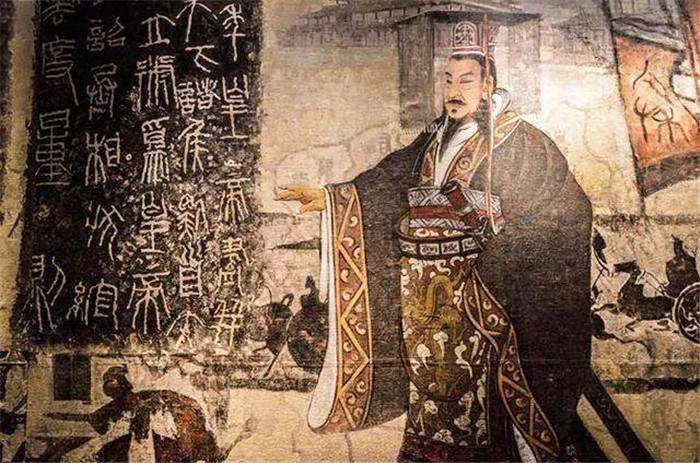After Qin Shi Huang unified the Six Kingdoms, the monarchs of the Qin Dynasty were actually confused about how to take the country's way forward. At this time, a court debate actually determined China's administrative structure for the next 2,000 years, and it can be said that it still affects each and every one of us.
At that time, Qin Shi Huang summoned The Chancellor Wang Qi and the powerful minister Li Si to discuss what kind of political structure the unified Qin Dynasty should adopt, that is, to discuss how the Qin Dynasty should move forward in the future.
Wang Qi proposed that the Qin Dynasty should continue to follow the Zhou Dynasty's sub-feudal system and divide the royal family into the homeland of the Six Kingdoms. In doing so, the Qin Dynasty royal family could monitor and deter the local old forces of the Six Kingdoms and consolidate national rule.
But the chancellor LiSi objected. He said that although the sub-feudal system can stabilize the country in a short period of time, after several generations, the relationship between the princes and the son of heaven has become very strange, and the blood relationship is negligible, and it is easy for the princes to sit on the throne.
Once the local power is too heavy, it will challenge the authority of the central government, and the demise of the Zhou Dynasty is the best example. Therefore, Li Si insisted on promoting the county system, abolishing the sub-feudal system, and appointing local bureaucrats to administer the district.
In the end, Qin Shi Huang adopted Li Si's suggestion, and the county system officially entered the historical stage, until today.
Since then, a series of decisions launched by Qin Shi Huang have actually served the implementation of the county system in essence.
He overhauled the Qin straight road to facilitate transportation, and once the homeland of the Six Kingdoms changed, it would be easier for the Qin army to obtain intelligence or send troops to suppress it. He moved the nobles of the Six Kingdoms to Xianyang for residential surveillance, which greatly alleviated the rebellious pressure in the homeland of the Six Kingdoms. But unfortunately, before these measures could take effect, Qin Shi Huang died.
The failure to appoint a prince before his death also became a direct inducement for the collapse of the Qin Dynasty. Hu Hai's dazedness and incompetence led to the Qin Dynasty being countered by reality. The nobles of the Six Kingdoms, Xiang Yu and Zhang Liang, the commoners of the Six Kingdoms, Chen Sheng, Wu Guang, and the emerging bureaucrat Liu Bang, all of whom joined the anti-Qin war. The first great unified dynasty in Chinese history collapsed in just a few decades.
In the early days of the founding of the Han Dynasty, there were similar controversies as when the Qin Dynasty was first unified. Liu Bang's final decision to set the capital in Guanzhong was actually to tell the world with practical actions that the "Han chengqin system" was the basic national policy.
Liu Bang almost completely inherited the political legacy of Qin Shi Huang.
